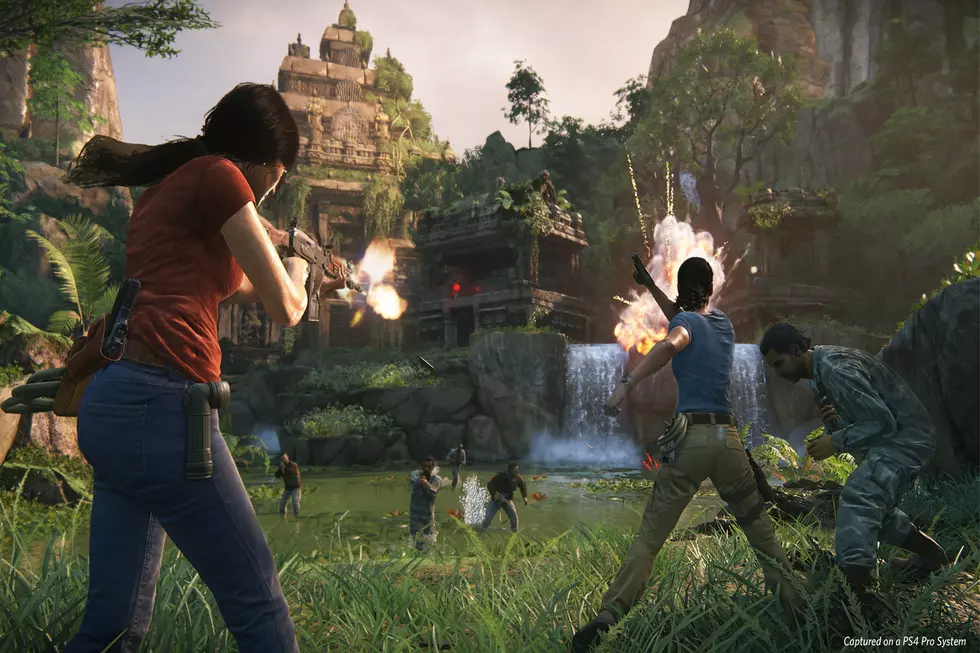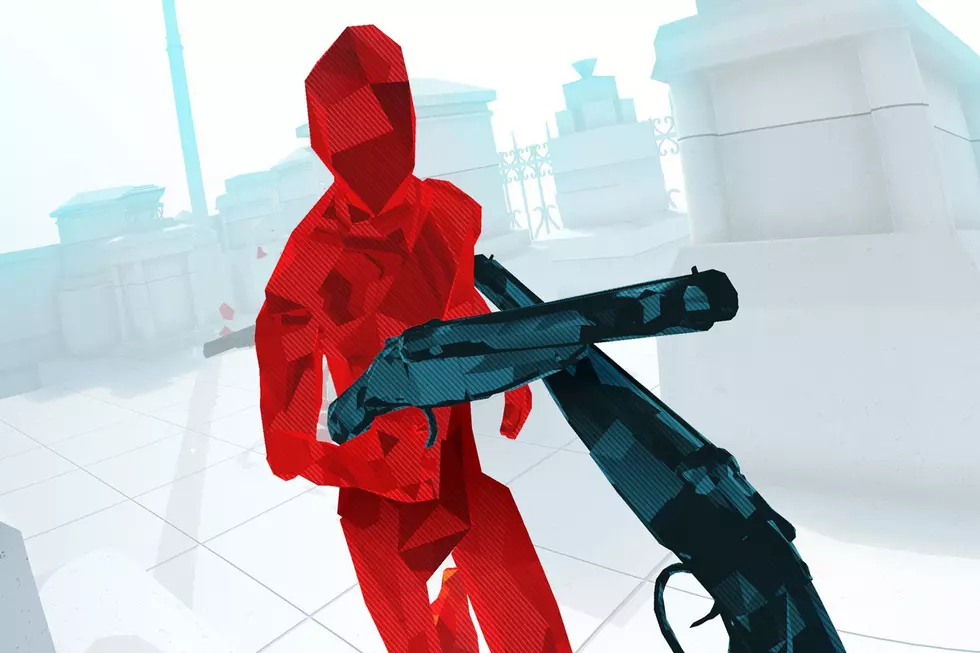
Mafia III Review (PlayStation 4)
Mafia III's biggest strength is the ambitious narrative developer Hangar 13 has chosen to explore. At a time in our own lives that eerily echoes the world of Lincoln Clay's New Bordeaux, there are a lot of parallels to be drawn from this story. It's smart and engaging, and challenges players to think about their perception of the world when tasked with walking in the shoes of someone the world is clearly against. At least, that's true for the most part. Once you start bringing murders and delving deeper into the actual gameplay of Mafia III, you'll find there's a disconnect between the game and the story it's trying to tell. You'll also find it's frustratingly repetitive and riddled with glitches.
In the years since Grand Theft Auto III defined what an open-world action game could be, there have been a number of imitators eager to put their own spin on the formula. The Mafia series began as a fairly rudimentary clone set during the heyday of gangland troubles in the 1930s, with first sequel picking things up during the second World War, but sticking to most of the same cliches. What immediately set Mafia III apart wasn't just the time period and place in which it was set --- a Vietnam-era stand-in for New Orleans --- but that the protagonist was no longer an Italian stereotype; he was a black war veteran.
Lincoln Clay isn't the first black protagonist in an open-world crime game, but his story is certainly the most timely and honest. The racial tensions of the south in the late '60s are front and center in Mafia III, and much of what's presented to players can easily draw parallel with the issues facing minorities today. Lincoln's story is one of revenge, but it's also one about the struggle for equal footing in a world that has next to no respect for him. That's not just apparent in the way the ruling family ruthlessly murdered everyone Lincoln ever loved, but in the way even everyday citizens look down on Lincoln as he roams the streets.
New Bordeaux's population isn't shy about they feel towards minorities. Walking into the upper class parts of town elicits gasps and people turning (and sometimes running) away from Lincoln. More rural areas are a bit more free with the language used towards Lincoln, with people hurling racial epithets as quickly as they draw weapons. There's also the matter of the police, who have their own indicator that they're keeping an eye on Lincoln. Seeing that little blue signal letting you know cops are watching closely would be uncomfortable were it not for being conditioned to keep an eye out for cops in a crime video game. Still, almost everywhere you go, it's clear Lincoln isn't wanted.
For all of the strengths of Mafia III's narrative, characters and world-building, the message gets muddled more and more the further you progress. Lincoln might not be a face anyone wanted to see, but that's just as much because he's a walking war machine as it is due to his race. The story writes Lincoln as a special ops soldier, but he cuts such a swath of bloody vengeance that your suspension of disbelief will be hanging by threads before too long. Understandably, you have to let these interactive elements of Mafia III exist alongside the story, otherwise it's not a game. The body count left in Lincoln's wake is more about tropes of the genre --- like revenge and gaining power --- than it is about the powerful story Hangar 13 has placed at the center of Mafia III.
Getting all that revenge isn't easy, or rather, it's actually very easy; it's just really tedious. In order to take down the vicious Marcano family, Lincoln will systematically have to take over each and every single one of New Bordeaux's districts and the criminal operations running within them. This means talking to similar-thinking allies to find out the weaknesses in the area to draw out the leader of that particular area. In theory, this is a fantastic game mechanic. Luring out higher-ranking officials in the mafia by disrupting their operations is a new twist we haven't seen before. The shootouts, fights and chases you'll have with these lieutenants and capos are some of the best moments in Mafia III.
That's how they feel at first anyway. As you roll deeper and deeper into the city, and find that getting to these bosses means doing the same tasks like wiretapping, interrogating, killing or robbing dozens and dozens of lower-level thugs, the "boss" fights are more of a break from monotony than they are special. It's a shame too, as these moments are so carefully crafted and scripted, there's a lot to like. It's just such a grind to get to each of the numerous underbosses that Mafia III starts to wear on you.
If Lincoln was faced with much of a challenge --- beyond just having more enemies in an area --- perhaps Mafia III's grind wouldn't be quite so bland. Sneaking in and out and stealthily murdering your enemies works to great effect. The enemy AI is all but incompetent. To aid the bad guys, there are things like NPC witnesses and lookouts around that you'll have to contend with. The last thing you want is reinforcements or the cops to be called in prolonging your slow trudge to the target at the end of the rope. Even when you're not sneaking around, enemy tactics are woefully unprepared for even the most casual of shooter players. Ammo is abundant, and so is cover. If you die, it's most likely because you got greedy and not because the game outsmarted you.
To tilt the balance even more in your favor, Lincoln can call on favors from his own underbosses, each of whom brings some special element to the game. You can have ammo and weapons delivered to you at any time, have the all phones disconnected for a short duration (so nobody can call the cops), or even have a hit squad of your own drive up for some back-up. More powerful aids are offered depending on how you dole out new real estate to your allies, but if you aren't being helpful enough, there is a chance you'll have to get your house in order with a few bullets. It's not that hard to keep everyone happy enough to stay on Team Lincoln, and even if they turn on you, these "friends" aren't much more of a challenge than any other fight you'll have along the way.
As beautiful as New Bordeaux can be at just the right moment, it's a place that cannot be on any Earth we know; there are just too many problems with this game world. If you don't fall beneath the world map, important things you need will melt into place, forever unusable. Cars necessary for missions won't start, characters will refuse to acknowledge you with any confirmation after mission completion, enemies will stare blankly at you as you remove the life from everyone else nearby. Open world titles having some bug issues because the game has to remember so much at once isn't anything new, but just because it isn't new doesn't mean it's acceptable. For all the things Mafia III may get right, every one is matched by a handful of problems that dull the shine more and more.
Mafia III as a narrative alone is a commendable effort, and is unlikely to be forgotten for that very reason. It takes a hard look at a life many of us have never led, and challenges players with an experience most could never truly know. Ultimately though, even the strongest of stories can't save Mafia III from falling prey to genre conventions, and too many at that. It never quite lives up to the ambitions Hangar 13 had, and it's a shame it's such a chore to actually witness Lincoln's story.
This review is based on a digital copy of Mafia III provided by the publisher for PlayStation 4.
More From Arcade Sushi









